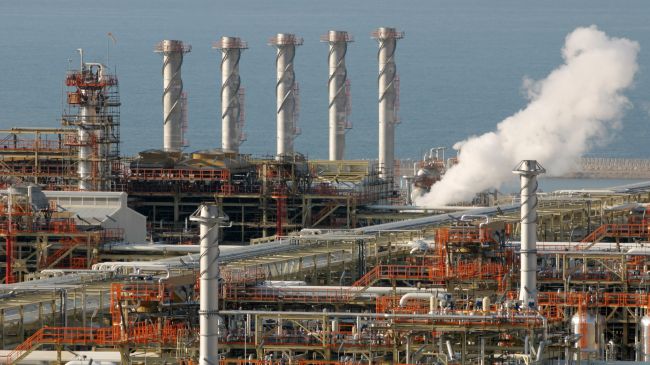BP’s annual report ranks Iran as world’s number one gas reserves holder

Sara Rajabova
BP, the UK-based energy giant, has slashed its global natural gas reserves estimate for the first time in decades, placing Iran at the top of the world's gas-rich countries and sharply dropping Russia's classified holdings, Press TV reported.
In its 62nd annual Statistical Review of World Energy released on Wednesday, the BP classed Iran as the world's top gas reserves holder with 33.6 trillion cubic meters.
Iran has been trying to boost its gas production by attracting foreign and domestic investments, especially in South Pars gas field.
South Pars is part of a wider gas field that is shared with Qatar. The larger field covers an area of 9,700 square kilometers, 3,700 square kilometers of which are in Iran's territorial waters (South Pars) in the Persian Gulf. The remaining 6,000 square kilometers, referred to as the North Dome, are in Qatar's territorial waters.
Moreover, National Iranian Gas Company (NIGC) said earlier in May that the country's natural gas refining capacity will climb to one billion cubic meters (bcm) per day in two years' time.
Mehdi Jamshidi-Dana, NIGC's director for coordination and supervision on production, said that the refining section of Iranian gas industry managed to register a daily output of 520 mcm during last calendar year's peak gas consumption period and the figure will reach 1 bcm per day by March 2016.
The NIGC official added that the giant offshore South Pars gas field in southern Iran is supplying 44 percent of domestic gas demand.
Jamshidi-Dana noted that Iranian gas refineries produced nearly 161 bcm of gas last calendar year, up eight percent from three years before.
The company downgraded Russia's reserves estimate to 32.9 trillion cubic meters from 44.6 trillion cubic meters in last year's report, putting global proven gas reserves at 187.3 trillion cubic meters as of the end of 2012.
BP's chief economist, Christof Ruhl, said in this regard that the firm decided this year to adjust its gas reserves estimates for the former Soviet Union, including Russia, where data on reserves is classified.
"Traditionally, countries of the former Soviet Union had different criteria than used elsewhere. So we used a conversion factor to convert that from those countries where we don't get direct data," Ruhl added.
The annual report also cut the estimate of gas reserves in the United States.
Meanwhile, BP also upgraded oil reserves for both Iran and Iraq by several billion barrels, estimating global proven reserves at 1,669 billion barrels at the end of last year, up slightly from 1,654 billion at the end of 2011.
According to the report, Iran's proven oil reserves are 157 billion barrels at the end of 2012, while it was 154,6 billion barrels at the end of 2011.
Furthermore, Iran has increased oil refining capacity at the Lavan petrochemical facility by 10,000 barrels per day in an effort to counter the U.S. sanctions and export petrochemical products instead of crude oil, the Mehr News agency reported.
A crash plan was launched last month, which led to 10,000 barrels per day increase in the production of gasoline, diesel fuel, and naphtha per day.
Iran's oil refining capacity is currently about 1.85 million barrels per day.
Besides, recently Iranian Oil Minister Rostam Qasemi says the U.S.-engineered sanctions have not impacted Iran's crude oil production.
He added that the country's crude oil export has decreased slightly, but the small amount is being used for the production of oil products for export.
Here we are to serve you with news right now. It does not cost much, but worth your attention.
Choose to support open, independent, quality journalism and subscribe on a monthly basis.
By subscribing to our online newspaper, you can have full digital access to all news, analysis, and much more.
You can also follow AzerNEWS on Twitter @AzerNewsAz or Facebook @AzerNewsNewspaper
Thank you!
